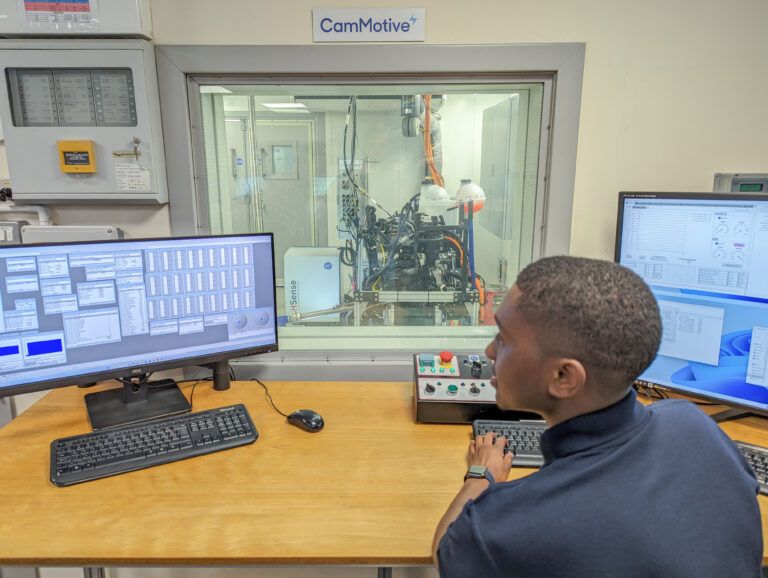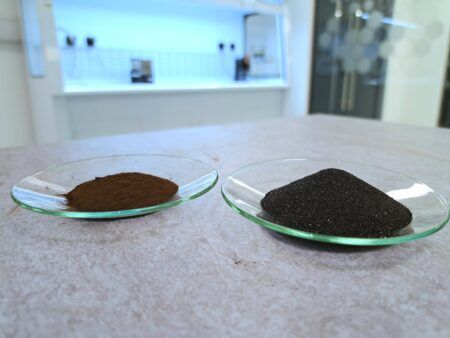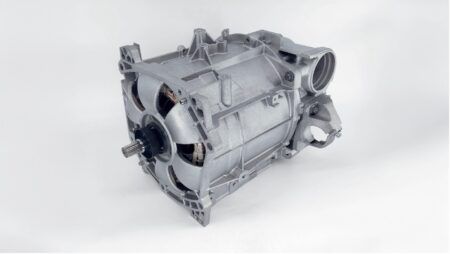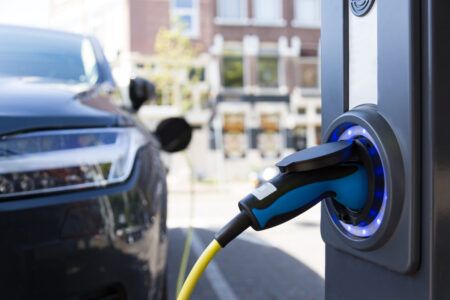The E-powertrain development consultancy has unveiled new capability for hydrogen fuel cell testing and development at its state-of-the-art laboratory in Cambridge, UK. The dedicated test site has been created to evaluate and optimise the next generation of hydrogen fuel cell technologies (HFCT) for use in transportation and stationary power applications.
“Our objective was to create a test environment to support and accelerate the development cycle for new HFCT, including hardware and control system optimisation,” says Bruce Campbell, Director of CamMotive. “We’re combining world-class test capability and infrastructure with decades of expertise in powertrain testing and development to help our partners deliver the most sustainable hydrogen-fuelled solutions for road, air, rail and sea transportation and stationary power.”
The facility is capable of testing hydrogen fuel cell systems of up to 150kW with potential to accommodate 200+kW systems. CamMotive has developed bespoke software to control the fuel cell test environment and measure key metrics including electrical power output, thermal output, hydrogen usage and emissions. Data from these tests are used to evaluate component behaviour and overall system performance and allow optimisation for efficiency, transient response, safety and service life.
The development of the test facility was initiated as part of CamMotive’s role in a consortium led by Ford to build a small fleet of prototype hydrogen fuel cell versions of its electric E-Transit commercial vehicle. The three-year FCVGen2.0 project was announced in May 2023 and is part funded by the UK Government via the Advanced Propulsion Centre UK (APC) Collaborative Research and Development programme.
As well as meeting the requirements of the project, the test environment has been developed to serve the wider hydrogen fuel cell market in the UK and around the world.
“Being part of the consortium has given us access to generous and valuable industry expertise that has allowed us to build our fuel cell test capability more quickly,” says Campbell. “We’ve used data from tests run on the Ford-designed hydrogen fuel cells to optimise the control system and validate hardware designs.”
CamMotive is an independent powertrain testing specialist working with Tier 1 automotive manufacturers, OEMs and research institutions involved in the development of battery electric and hydrogen fuel cell powered vehicles to validate, optimise and develop electric vehicle technologies. The company’s hydrogen infrastructure will also be used to support the development of hydrogen combustion engine (H2ICE) technology via its sister company, Cambustion.





